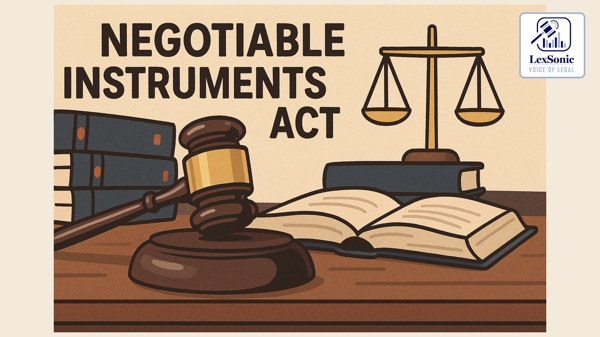Compounding Offences under the Negotiable Instruments Act.
11 July 2024
Negotiable Instruments Act >> Criminal Law
This case stems from a complaint filed under Section 138 of the Negotiable Instruments Act (NI Act) by M/s. New Win Export & Another against A. Subramaniam . In 2006, the second appellant borrowed a sum of ?5,25,000 from the respondent but failed to repay the amount. To address this debt, the second appellant issued a cheque for the same amount through his partnership firm, the first appellant (M/s New Win Export). When the cheque was dishonored due to insufficient funds, the respondent initiated legal action.
Initially, the Trial Court convicted the appellants and sentenced them to one year of simple imprisonment. However, upon appeal, the Appellate Court acquitted them. The respondent then brought the matter before the High Court, which overturned the Appellate Court's ruling and reinstated the Trial Court's conviction. Subsequently, the appellants sought further relief from the Supreme Court.

Settlement Agreement:
Before filing the current appeal, the parties reached a settlement on January 27, 2024. According to the settlement document, the appellants paid the respondent the full amount owed, ?5,25,000, and the respondent agreed to withdraw any objections regarding the appellants’ conviction. The key points of the settlement included:
- Acknowledgment of the payment of ?5,25,000.
- The respondent's consent for the conviction to be set aside.
- Support from the respondent for the appellants’ appeal to the Supreme Court.
Legal Provisions:
Section 147 of the NI Act states that all offenses under this Act are compoundable. The CrPC, specifically Section 320(5), provides that post-conviction compounding requires court approval if an appeal is pending. In this case, the court needed to verify the authenticity of the settlement. To facilitate this, the court requested an affidavit from the respondent, which confirmed that the appellants had indeed compensated the respondent and that the respondent had no objections to the conviction being overturned.
Court's Rationale:
The court recognized that the essence of the NI Act is to protect public interest by ensuring the reliability of negotiable instruments. Given the high volume of dishonored cheque cases pending in the judicial system, it emphasized the importance of prioritizing compensatory remedies over punitive measures. This perspective aligns with previous judicial interpretations, suggesting that courts should favor compounding offenses when both parties agree.
In a precedent set in Raj Reddy Kallem v. The State of Haryana & Anr., the Supreme Court quashed a conviction under the NI Act even when the complainant did not consent to compounding, highlighting that sufficient compensation had been made.
Conclusion:
Considering the circumstances and the mutual agreement between the parties, the Supreme Court allowed the appeal, acquitting the appellants and setting aside both the High Court and Trial Court's orders. The second appellant, previously exempted from surrendering, was no longer required to do so, and his sureties were discharged. This case serves as a reminder of the judicial system's capacity to facilitate settlements, thereby promoting efficiency and justice in matters concerning negotiable instruments.
Negotiable Instruments Act, 1881
